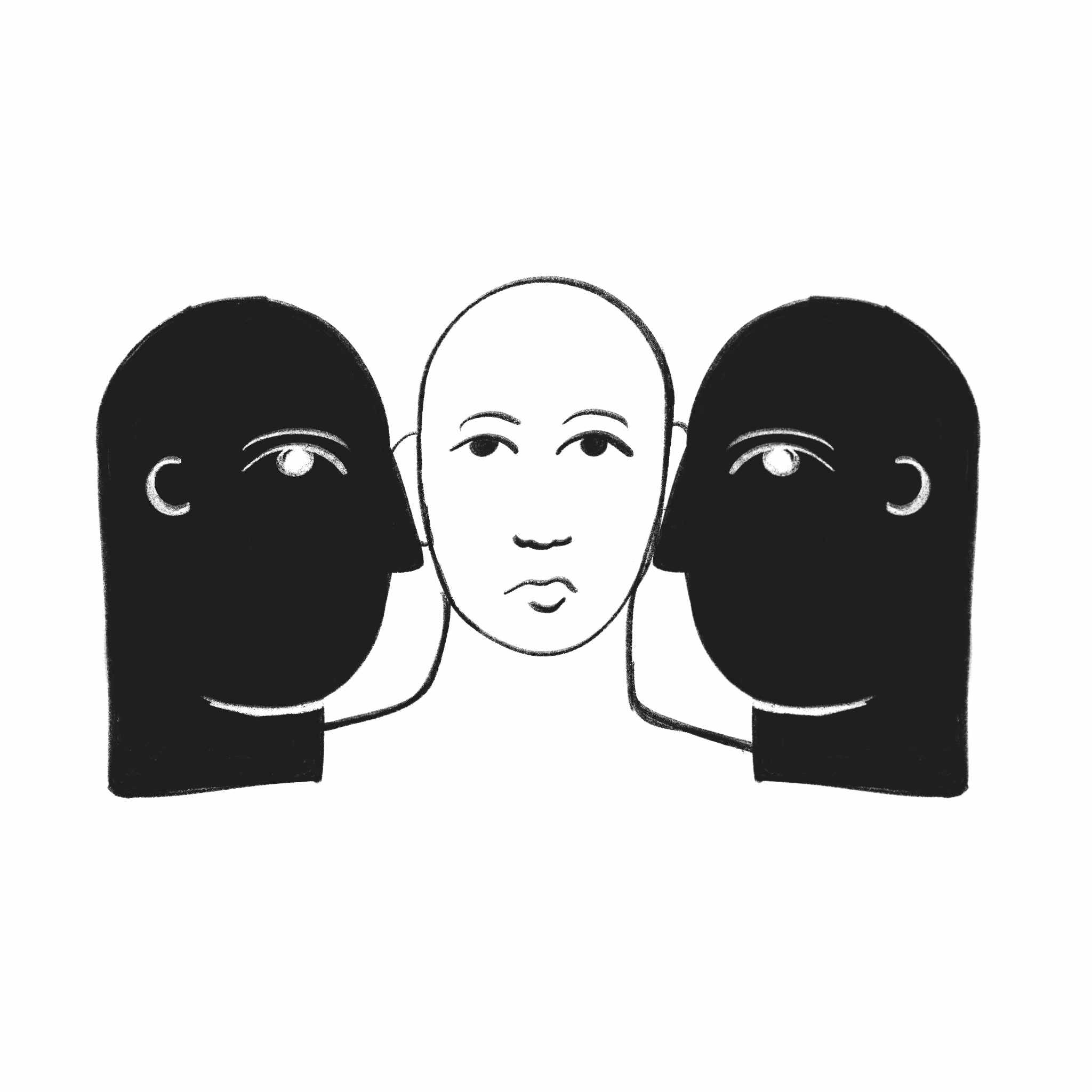Seen through each other
December 6, 2024
 Henry Abbott
Henry AbbottMy mom is driving. She’s trailing our family friend’s grey car as it inches along a winding road of snow and mud. A storm blew through a few days earlier, depositing five inches of snow—winter’s first. And it’s forcing our friend to, for the first time—and without winter tires—drive through icy slush. She’s on her way back to university, having spent Thanksgiving with us. As we slide up and down New Hampshire’s hilly backroads, I think of all that happened this week. I let it simmer within me, the complex ingredients of being home.
Once we make it to the main road, clear of any ice or slush, and peter to a stop at a light, my mom decides—despite the cold—to slide back the sunroof. Our horn blares as she slams the steering wheel, then we stick our hands up into the cold air and wave. In front of us, our family friend waves back. The light turns green; her car shoots straight ahead, while my mom and I turn left. For as long as I can, I watch the grey car recede; immediately a gas station rises up and blocks my view. As I face forward I’m wearing a little smile. For the first time in a while, I feel full. Still full of mashed potatoes and chocolate chip cookies from days previous, certainly—but also full of good people.
By September and even as early as August, people yearn for November and December and for good reason: The holiday season is pretty magical. And while there exists the kind of magic we might feel standing on top of a mountain, of central importance is a different kind: mundane magic—magic existing in everyday things. This is the stuff we depend on, not to “get through” our days, but to “get to live” them. Is the holiday season magical in the mundane sense or the top-of-a-mountain sense?
Of course, lights strung up on Maine Street, brilliant icicles glistening in trees and the quad flush with snow all make the world prettier. This beauty feels unique and temporary, like the view from the top of a mountain. But at the core of the holiday season is something entirely mundane, distinct from icicles, lights or snow: that is, people who feel like home. What’s truly magical about the holiday season is snuggling with my mom to watch a movie or teaching my little brother kickboxing in the living room or, as I did when I was little, building a ramp of snow with other neighborhood kids. And while this emphasis on people as a source of magic is in no way a revolutionary thought, it allows us to reconsider just how unique November and December are. They serve as a benchmark for the other months, which could, in theory, be just as magical.
People are a primary source of mundane magic and are the core of the holiday season’s magic. We depend on each other not just for materialistic needs, but for needs that are fulfilled with meaningful words and gestures. We have the potential to fill each other up—not necessarily by giving gifts—but by simply being ourselves. My father was sitting on the couch, looking at his phone, when suddenly he burst into a long speech about something related to wood. While I don’t remember the actual subject of his linguistic escapade, I remember the earnestness in his voice, and I remember half-listening appreciatively, a small smile creeping over my face the longer he talked. People, every now and then, remind me of how nice it is to be present. To listen. And to love.
But what’s more, this kind of attentiveness to each other’s beauty should be happening more than simply two months out of the year. And it does. Certainly, there’s a large degree of luck to having or finding people that feel like home. But once we do get lucky, we have an infinite source of magic in the world.

Comments
Before submitting a comment, please review our comment policy. Some key points from the policy: